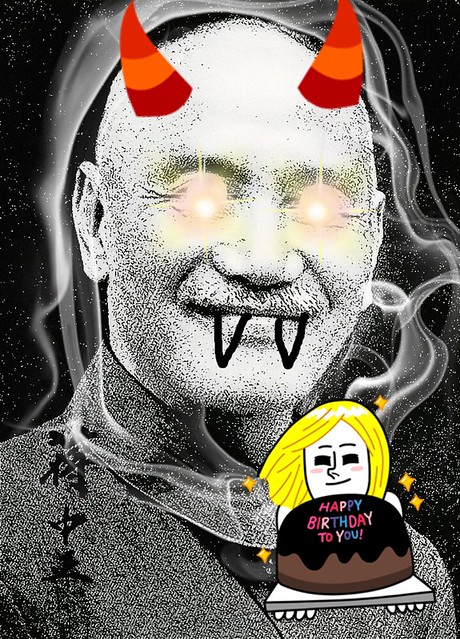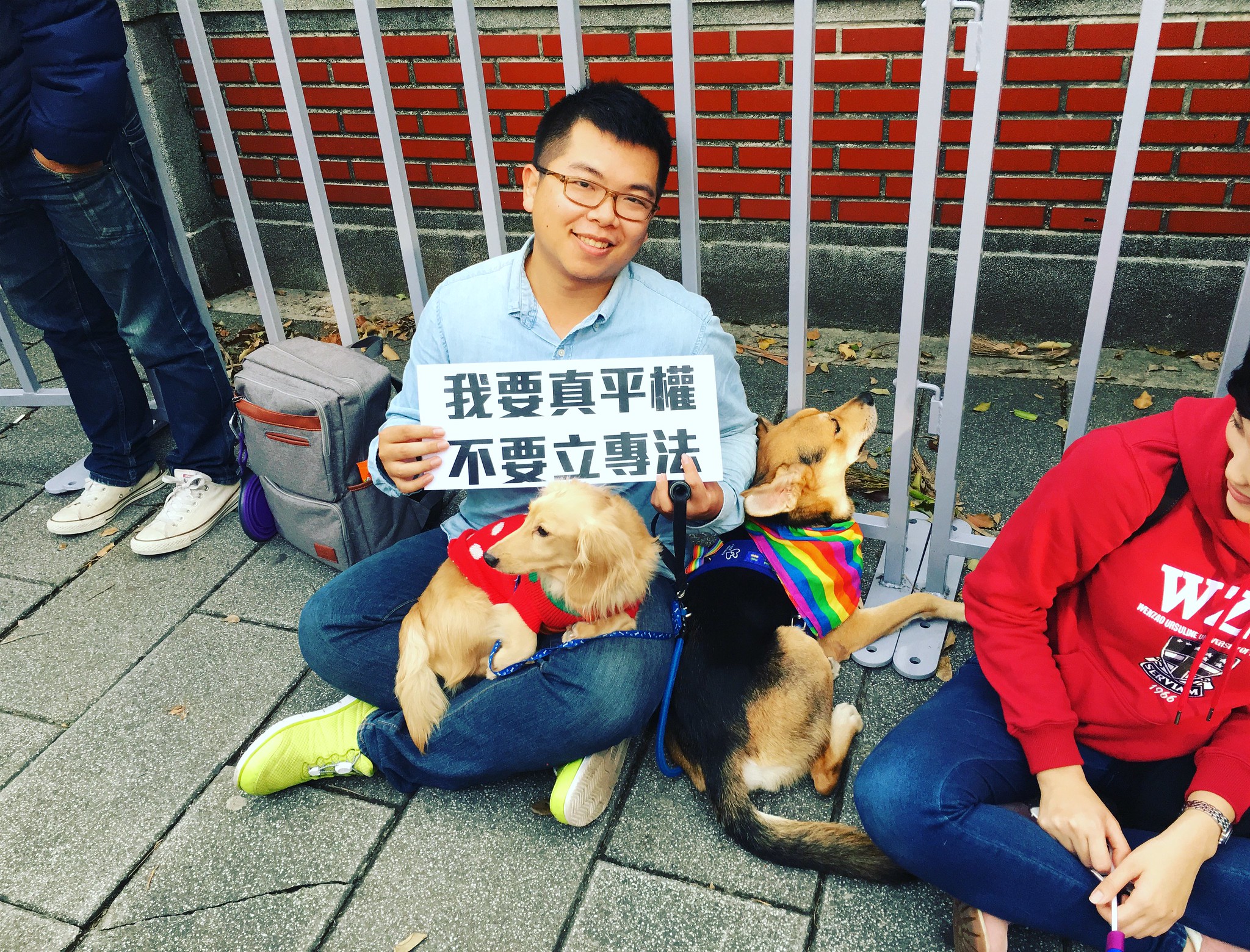
I just wanted to share a few photos from Monday's gathering outside the Legislative Yuan, as that (heh) august body debates the same-sex marriage bills before it. I also wanted to make sure anybody reading this who doesn't know already knows about and is encouraged to attend another pro-marriage-equality gathering at Ketagalan Boulevard (in front of the Presidential Office) on 12/10.
I don't know what the lineup is for that event, but this one included several well-known Taiwanese activists, including Jennifer Lu, Lin Fei-fan, Miao Boya (at least I saw her near the stage but am not clear on whether she spoke) and others.
I don't have a lot to say that hasn't already been said by better-informed commentators than me, other than to reiterate my strong and vocal support for marriage equality in Taiwan. Taiwan has been struggling for years to be noticed internationally -for many who have never visited the country, it's like it doesn't exist. Many assume it's already a part of China. Others assume it is not a democracy (I had a family member make this mistake. They were corrected) or that it's a third-world backwater rather than a developed tech, artistic and industrial hub in the heart of Asia.
Being the first Asian country to make marriage equality a reality will not only help further separate Taiwan from the claws of China by creating an easily recognizable and irreconcilable cultural distinction between the two nations - which I fully support - and is not only simply the right thing to do. Being a pioneer in Asia in terms of human rights - yes, marriage is a human right, so if you want to withhold that from some people based on who they love, you do not support basic human rights and I have a few choice words for you and am not interested in your illogical arguments - but would also raise Taiwan's international image and recognition. It is not only the right thing to do, it is the right thing for a nation whose people desperately want it recognized as such.
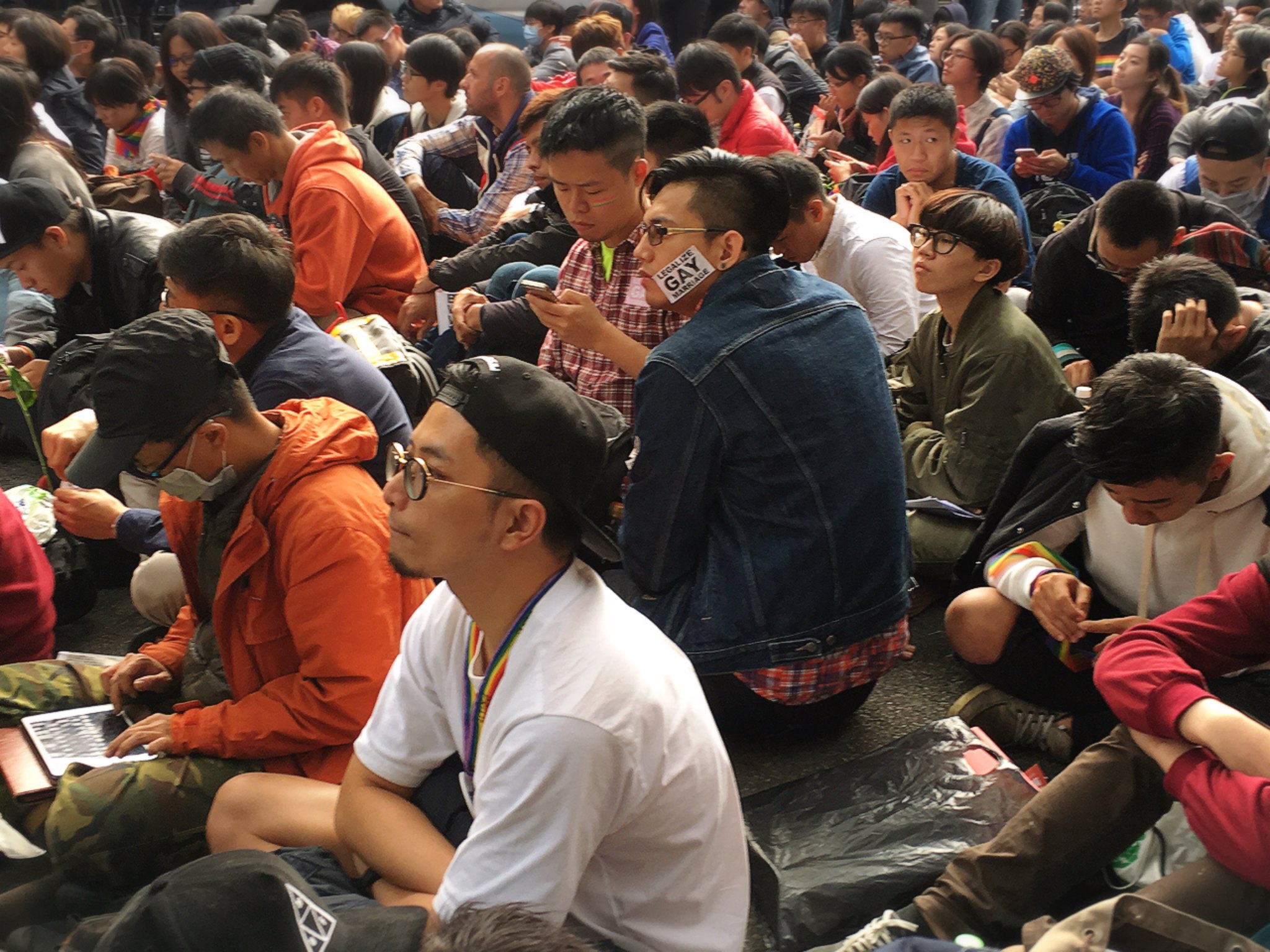
As most of you know, the Tsai administration on a few occasions has indicated a desire to back down from full marriage equality and push instead for "civil partnerships" (which would not necessarily confer the same rights to same-sex couples). For obvious reasons, I do not support this: as one protester noted with his wonderfully misspelled sign (which I did not have the heart to point out to him), separate is not equal. The people want real equality, not an empty gesture. Real equality means all marriages are equal. Nothing less is acceptable.
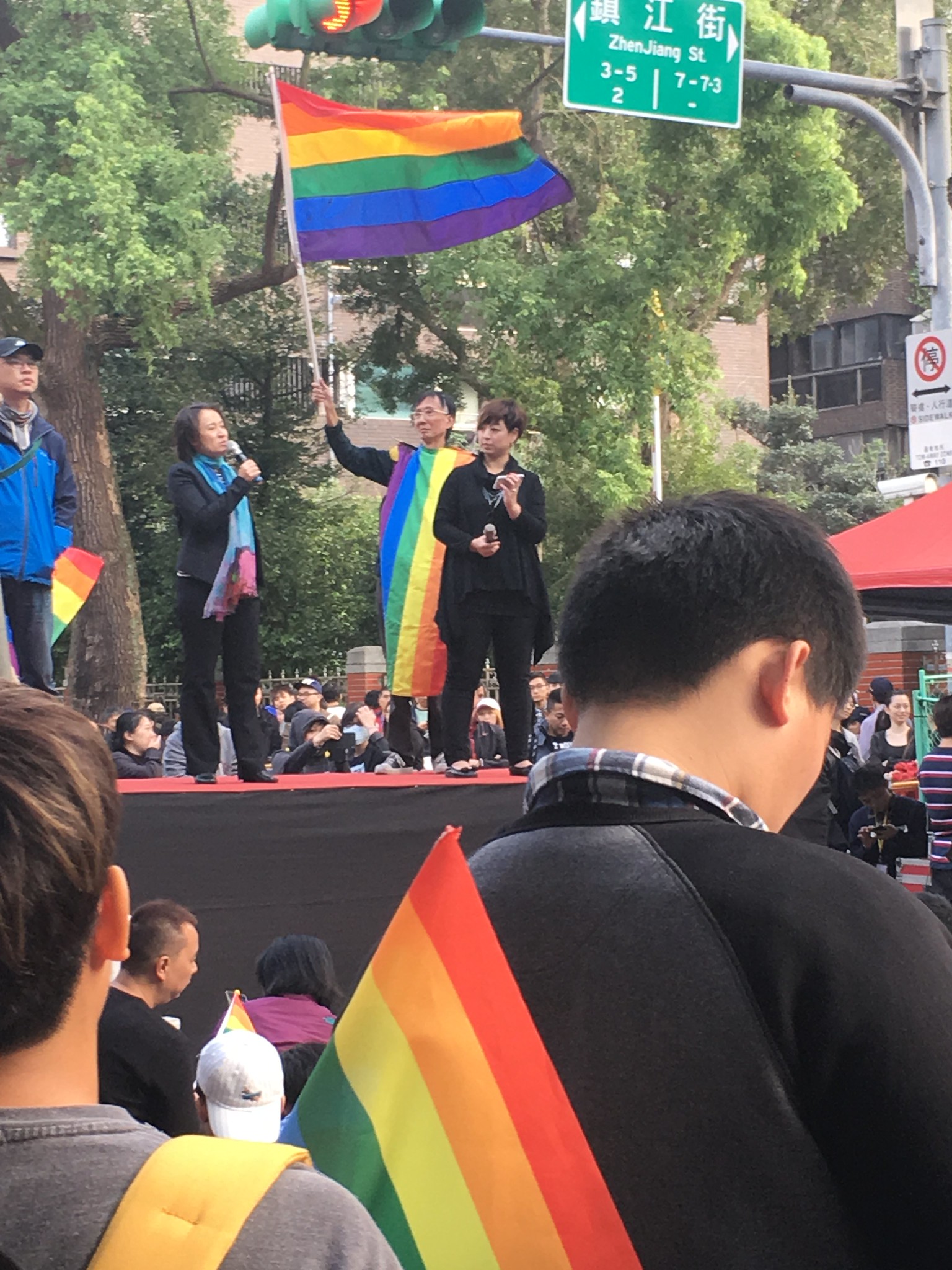
You likely also know that the Taiwanese public, in a clear majority, supports marriage equality. This is not the 'conservative Asian country' you thought it was, or the sort of country you imagine when you imagine Asian culture, if you are working mostly off general impressions and stereotypes. Not only that, but beyond clear majority support, a huge percentage of people are indifferent, meaning it's a rather small minority indeed who are opposed to taking this step.
Indeed, the near 100% support of the youth of Taiwan for marriage equality is well-documented, but I can honestly say I've also heard it from grandparents, working-class folks in small towns, and middle-aged taxi drivers. On the way to an appointment in a taxi, the last rally, which I was unable to attend, was being discussed on the radio. I made a passing comment indicating my support and the septuagenarian taxi driver replied with "obviously. It's a human right. It's very simple. Of course everyone should have human rights."
Yes, exactly.
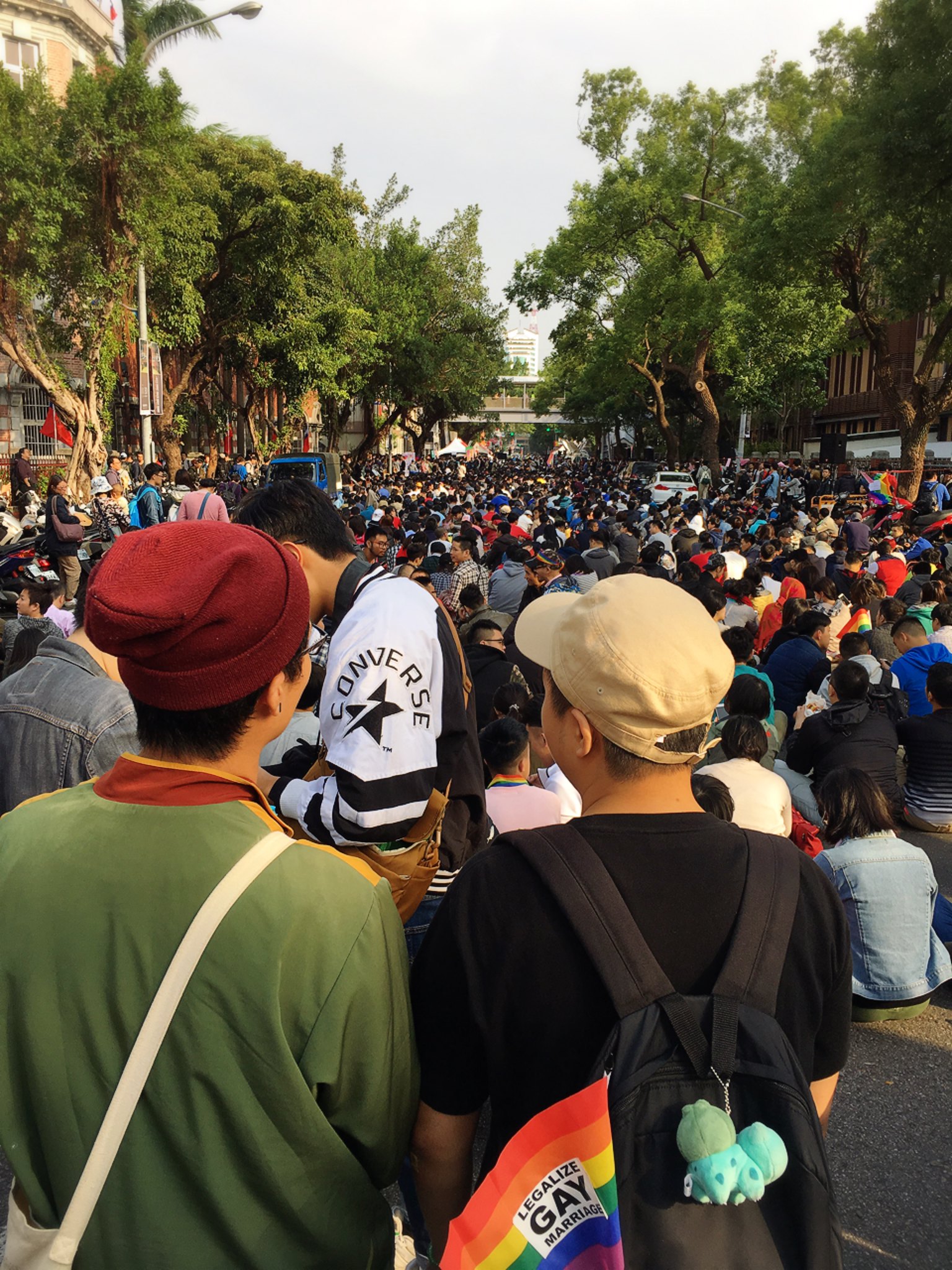
So why is it taking so long? Again, it is well-documented that the main opponents to equality are the influential Christian churches - most of them preaching ultra-conservative, post-truth, fundamentalist/evangelical ideologies. So, basically, the worst kind of fake "Christians" who don't really understand what following Christ means (here I am, an atheist, feeling this way about them. If my disdain is palpable, there's a reason. But please don't think it extends to all Christians. Only these kinds of hateful people who simply want an angry patriarchal sky daddy to rubber-stamp their bigotry rather than a cohesive philosophy of inclusion, kindness and forgiveness). These churches and their "Christians" have deep ties to both major political parties, the KMT possibly moreso than the DPP, though it's not clear.
Most Taiwanese, however, are not Christian. I've heard that only approximately 4.5% are (a quick googling confirms this).
The game of influence and power is easy to point out. What I'm wondering is, with politicians with ties to these churches going against the will of the people - and the will is pretty damn clear - how long until it starts to really cost them votes?
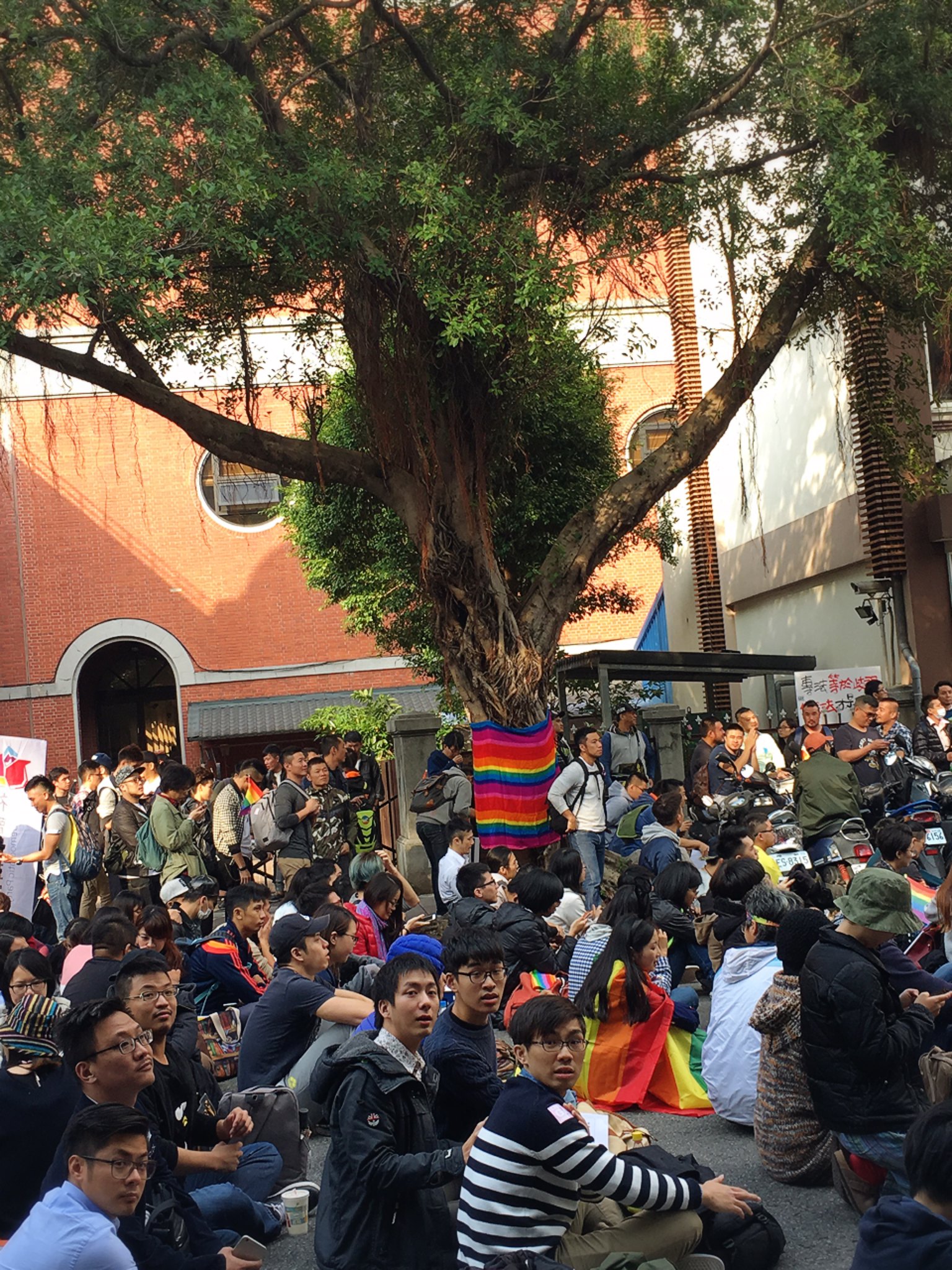
Hear me out here. Taiwan has never been the ultra-conservative culture people think it is, at least not in any way we'd define as typical Western conservatism. To quote a friend, the Taiwanese have always had a rebellious, liberal streak, perhaps moreso than is apparent in other Asian nations, or at least it's a stronger cultural undercurrent. Being a strong ally and supporter of the US, with an openness to Western values and liberal democracy, has helped this undercurrent come more to the surface to be sure. However, it hasn't been until recently that the general hold of Chinese/Han chauvinism (and possibly also its more organically Taiwanese counterpart, Hoklo ethnocentrism) has been shouted down in a majority of society in favor of more liberal voices gaining strength.
To put it simply, it was perhaps easier for political parties to hide the extent to which their actions were influenced by churches in Taiwan under a veneer of conservative Chinese chauvinism, because it is not at all clear where Christian chauvinism ends and Chinese chauvinism begins regarding quite a few social issues (I've written about this before, by the way).
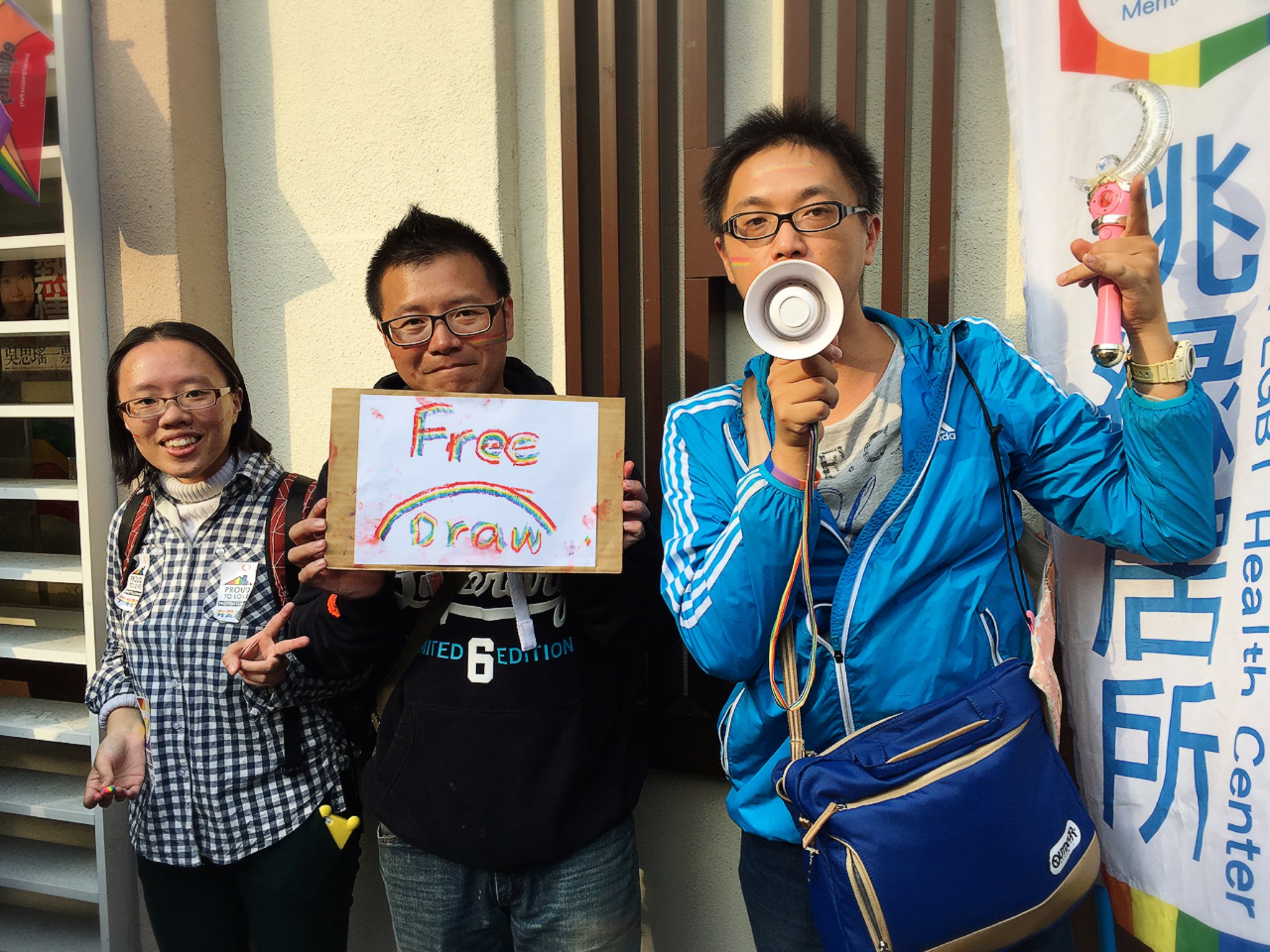
Now that the young and liberal voices (not necessarily one and the same) are starting to influence both policy and culture, however, there is an expiration date on how much longer either party can hide that they are influenced by groups that, by and large, do not represent the Taiwanese electorate.
This is perhaps a bigger issue for the DPP than the KMT. The KMT's core is more likely to hold conservative views. So the KMT continuing to more or less be the bigger obstacle to equality won't necessarily affect their decision to stay in the blue camp and the party has long since lost the youth vote. All the Jason Hsus in the world aren't going to fix that.
The DPP, however, still has a shot at those younger, liberal votes. Many have defected to the NPP and other small leftie parties, but many are still willing to vote if not for their local DPP candidate, than for a DPP president. Continuing to stall on marriage equality will eventually cost the DPP the youth vote, because they're just not going to stand for being dicked around much longer on issues that are important to them.
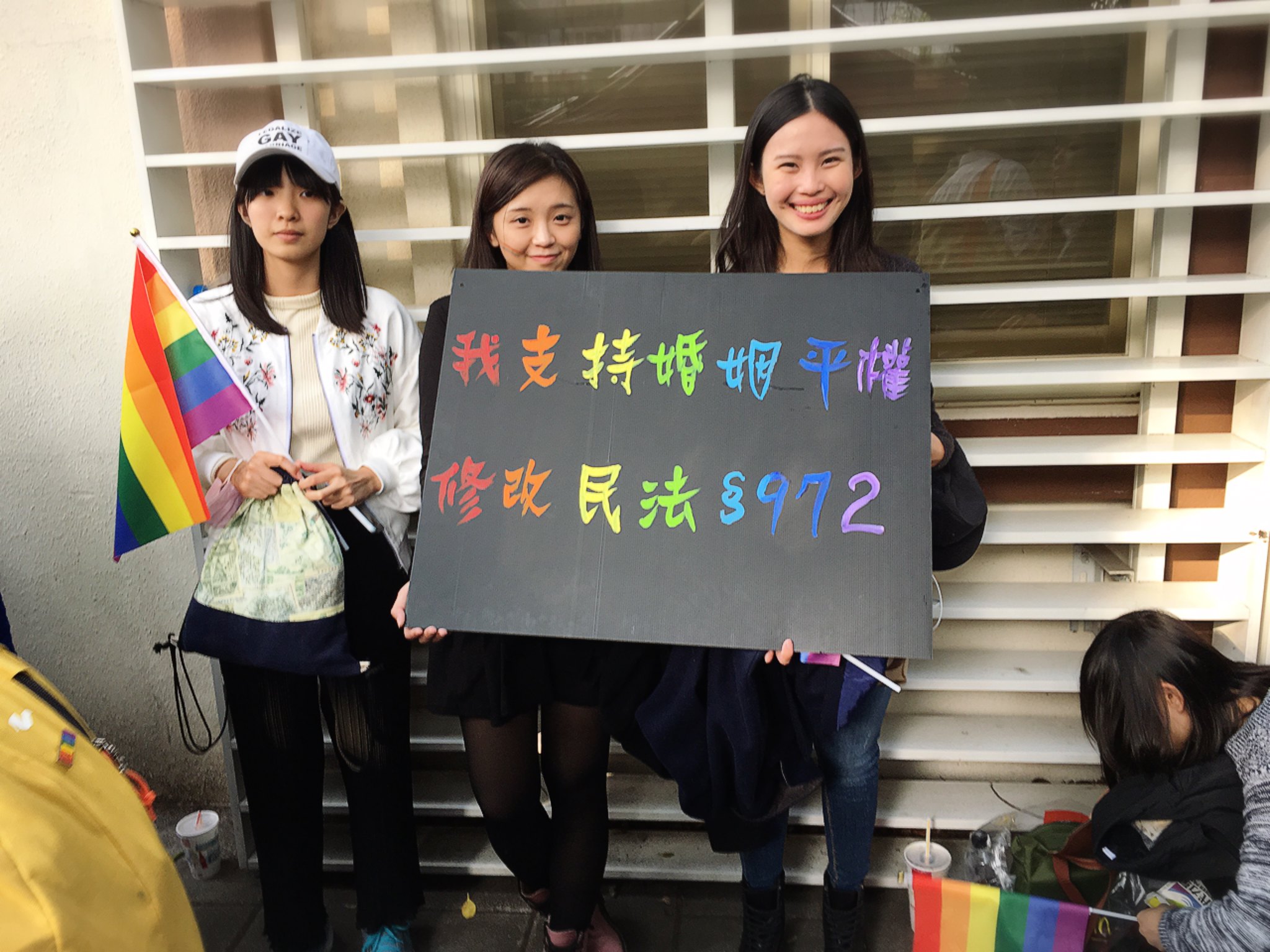
So, as influential as those churches and their members may be in Taiwanese politics - an influence well outsize their proportion of society, at least one party is likely - in my view anyway - to start losing votes over it. If the DPP wants to capture and keep the youth vote, they're going to have to jettison the Christians who have their hands on the buttons of Taiwanese social issues in favor of the more progressive approach their party's name implies.
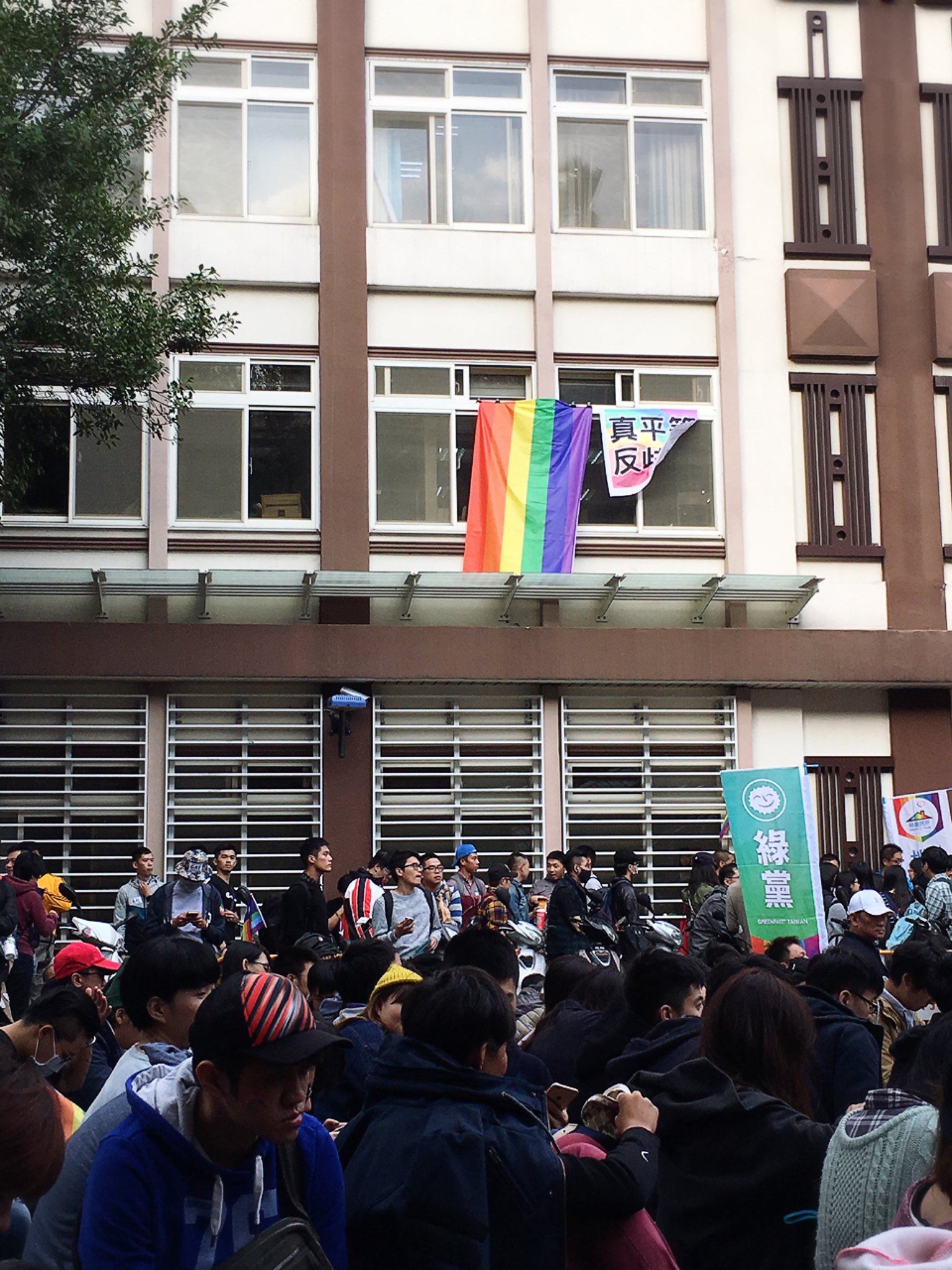
Anyway, I don't have much more to say except I am happy that Taiwanese are finally taking to the streets beyond the well-established Pride parade to show the government that the people do, in fact, want equality. Anti-equality bigots have their demonstration game down. The ethically and morally correct pro-equality, pro-human rights left needs to respond in kind and, while keeping it friendly and love-oriented, fight back and show the government how big their numbers are.
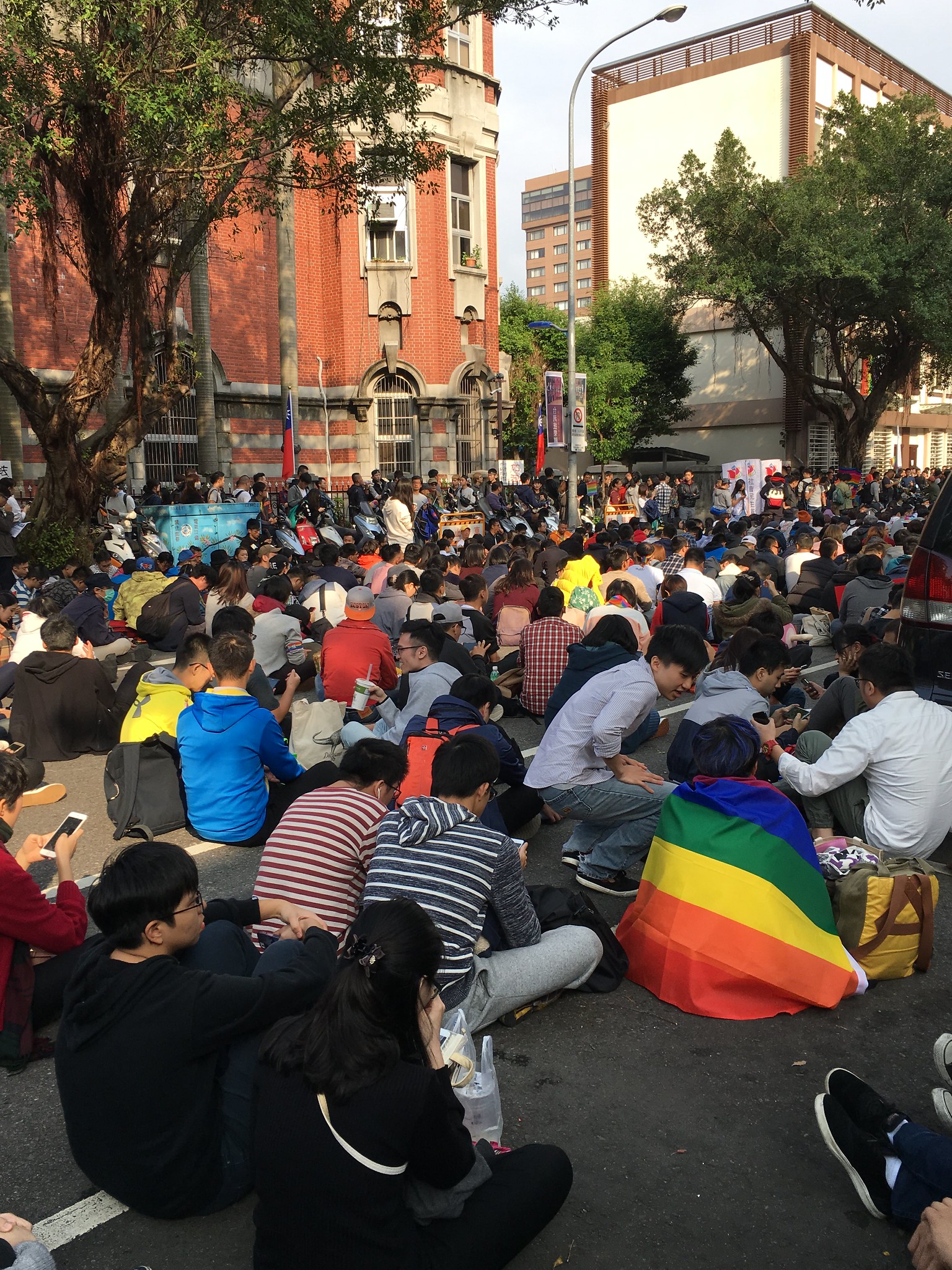
So, enjoy a few more pictures!
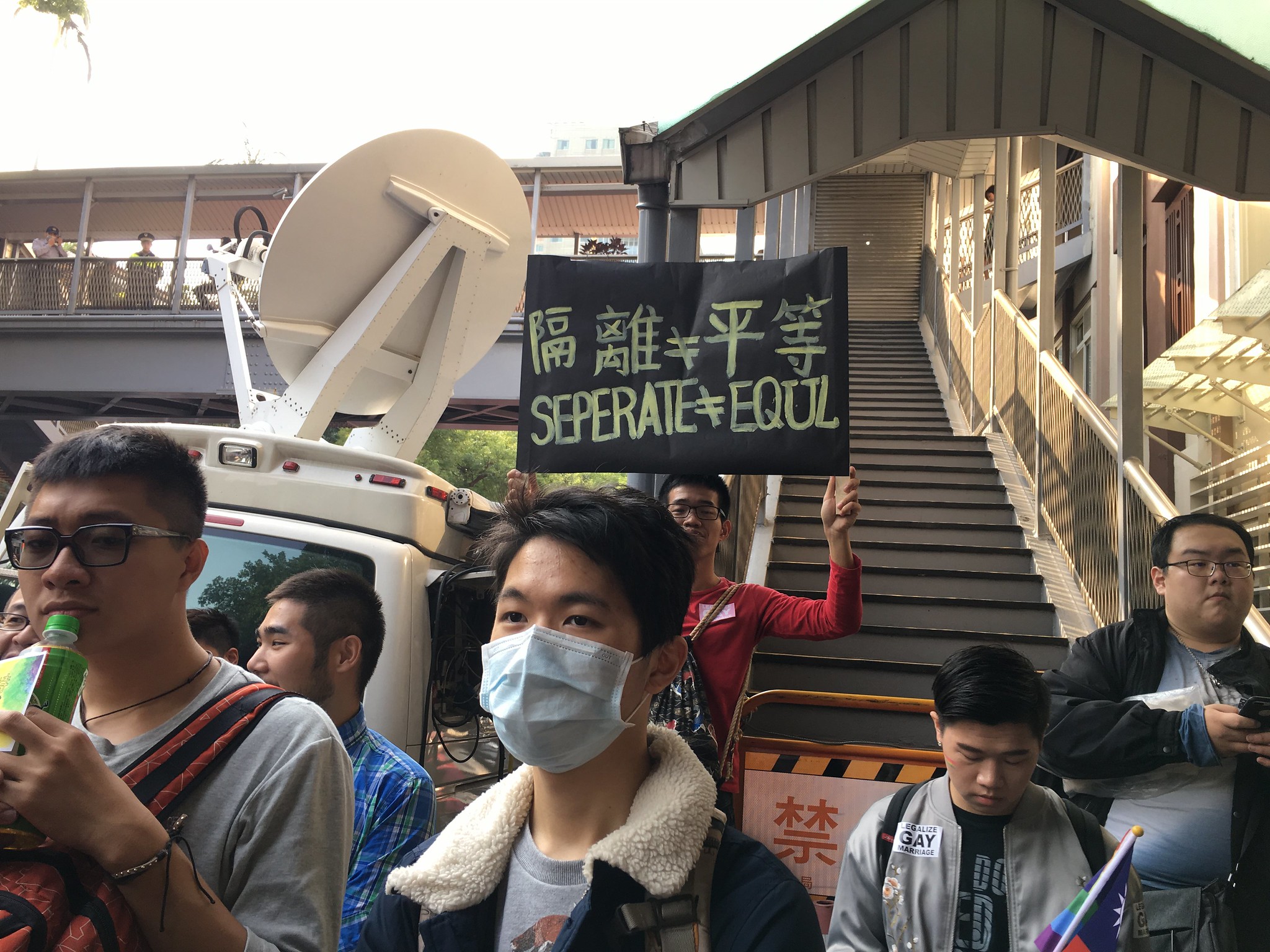
I didn't have the heart to tell this poor guy he spelled every English work on his sign wrong :(
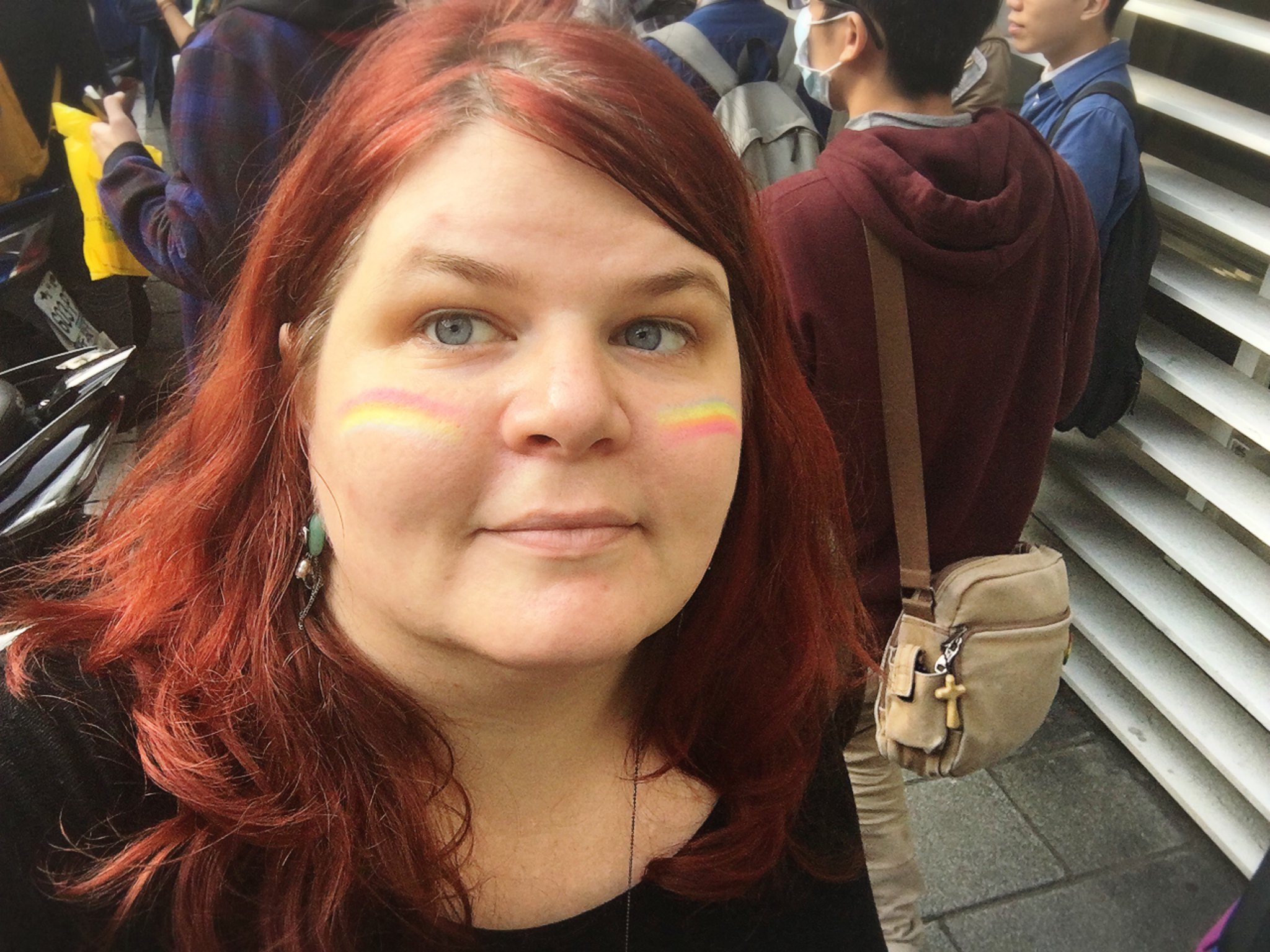
Can you tell I hadn't slept well the night before?

